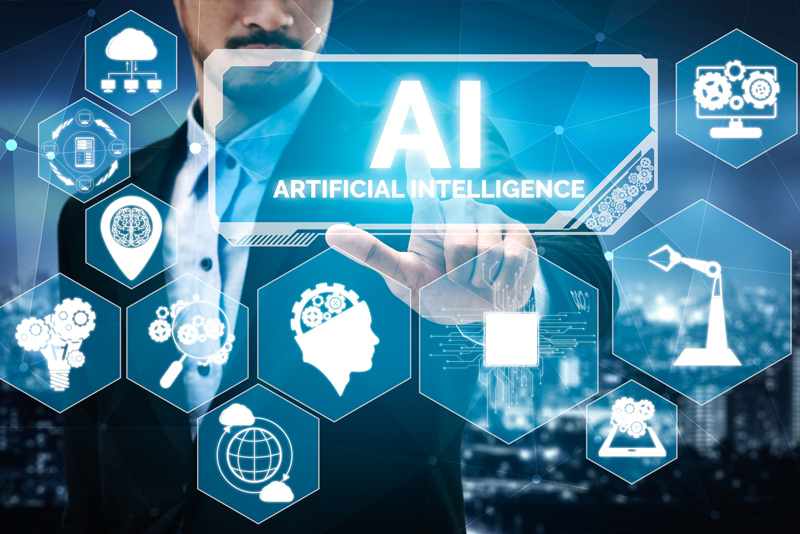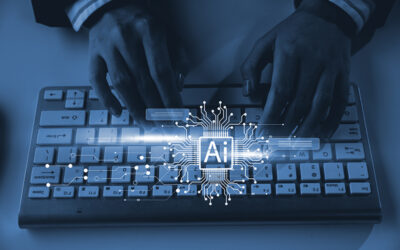Technology is growing day by day. The advent of new technologies paves the way for revolutionary changes in the world. One such technology is Artificial Intelligence or AI. It helps reduce human effort and provides more precise and quality results. AI finds application in various fields ranging from business to healthcare.
In healthcare, AI can perform better than humans in terms of diagnosing diseases as it generates more accurate results. Apart from diagnosing diseases, other aspects in which we can apply AI in healthcare include patient care, administrative processes within provider and payer and also in pharmaceutical companies. For example, if a patient wants to claim insurance, he can collect his medical records from the hospital or other health facility where the documents are safely recorded using AI. Healthcare industry players can rely on professional AI development services to benefit from cutting-edge AI technologies.
The main types of AI include Machine Language (ML), Natural Language Processing (NLP), physical robots and Robotic Process Automation (RPA). This blog helps you to understand the different types of AI and its applications.
Unlock the power of AI in healthcare!
We provide AI development services tailored specifically for the healthcare sector!
Call us @ 1-800-670-2809 and get your Free Trial today!
From intelligent diagnostics to predictive analytics, we can help revolutionize patient care. Contact us today to explore the possibilities and start transforming healthcare with AI!
Types of AI Used in Healthcare:
- Machine Learning: It is a branch of Artificial Intelligence that uses an algorithm to examine previous data, current information and interactions. This analysis helps to predict the most ideal treatment for patients. It also plays a key role in optimizing and streamlining healthcare procedures and administration. Data annotators are one of the important aspects of ML. It takes CT and MRI scans and marks tumor cells more accurately.
- Natural Processing Language(NLP): It is the process of understanding and interpreting text or language by a machine. NLP can help analyze patient’s medical records, and give suggestions to improve the quality of methods used and prepare better results of the patients. The common use of NLP in AI involves understanding and classifying medical records. When the machine understands what the user is trying to communicate, then it works accordingly.
- Physical Robots: Physical Robots are a popular type of AI used in the medical field. Initially, scientists designed robots for delivering hospital supplies. However, improved versions of robots are available today. Such robots can collaborate with humans and can be easily given training for doing particular tasks. They are more intelligent as AI capabilities are embedded in the operating system (brain). Robots have marked their presence in operation theatres as well since 2000, which are known as surgical robots. This branch of AI is still searching for new possibilities.
- Robotic Process Automation: This technology in AI has been developed mainly for administrative purposes. Robotic Process Automation (RPA) is inexpensive when compared with other types of AI. Contradictory to the name, robots are not involved physically in this process; rather, it is a form of computer program. In healthcare, RPA is used to record early authorizations, updating patients’ medical records, and billing. It can even be used to extract data if we club it with other technologies like image recognition.
Application of AI
Artificial Intelligence or AI is advancing quickly. As a result, AI applications in each sector also increase. Among all the sectors, AI has vast opportunities in healthcare. We can apply AI in every field of healthcare from billing to surgery. Let’s take a look at the possible applications in healthcare.
- Ability to make clinical decisions: Doctors can point out important information from patients’ medical reports with the help of Natural Learning Process (NLP). This helps them to decide treatment procedures effectively for the patient. AI can store a large set of data, which provides relevant information about patients and can even recommend the optimal treatment method.
- Chatbots: People have a tendency to schedule an appointment with their doctors even for small health-related problems which they can treat by themselves. This leaves doctors with a tight schedule. In order to save money spent on unnecessary visits to doctors, patients can utilize chatbots. It is an AI application which incorporates an algorithm for functioning. Chatbots answer the questions or queries patients may have instantly. They also give suggestions for any problems patients may have and even recommendations for self treatment for a simple health concern. The service of chatbots is available 24*7, which helps the doctors to work in a relaxed atmosphere.
- Surgical Robots: AI technology-incorporated robots can perform medical activities like surgeries. Surgical robots can do surgeries with a high level of accuracy. These surgical robots can collect previous medical records, including surgical records of the patients, and make decisions accordingly.
- Nursing assistants: AI-implemented robots can be utilized instead of human nursing assistants. Such robots are known as virtual nursing assistants. They can engage themselves in duties ranging from conversing with patients to providing patient care. They are available 24*7 and are capable of answering all kinds of questions from patients as well as examining them and providing suitable solutions. The world’s first virtual nursing assistant is Care Angel.
- Can record documents accurately: With the help of AI Robotic Process Automation (RPA), patient records can be documented with a higher level of accuracy. Apart from storing patients’ documents, this software has the facility for saving other official documents, and also the provision for billing.
Healthcare is a sector where one has to deal with each and every aspect carefully because it concerns the lives of humans. Utmost accuracy is indispensable. AI is establishing prominence over traditional methods. AI is a branch of technology advancing every day. It has vast possibilities and is capable of replacing human effort with machines. We can expect unbelievable growth in this branch of technology. The larger possibilities of this technology are still to be uncovered.
At the same time, everything in this universe has positives and negatives. Likewise, AI in the health sector too has pros and cons. Professional business process outsourcing companies providing AI consulting services can support healthcare businesses to a great extent.




